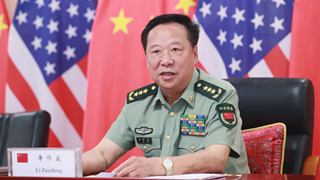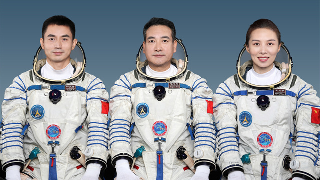By Hua Wu
Japan's upper house election were held in Japan on July 10 and the Liberal Democratic Party, the ruling party, scored a victory. There will be no nationwide elections in Japan for the next three years. The government of Fumio Kishida is expected to start the "three golden years" and enter a relatively stable period of administration. However, it seems that all political forces in Japan are "preparing" and have plans. If the Kishida government wants to make good use of these three years, it would better lay down three burdens:
First, the burden of the US-Japan alliance.
The US-Japan alliance is an unequal and asymmetric security arrangement. After the end of World War II, the US aims at Japan's geographical value, implemented a separate military occupation of Japan, and later signed a security treaty. This is the starting point of contemporary US-Japan relations, which are fundamentally unequal and abnormal.
The US does not treat all allies equally. The US lured the UK and Australia to establish AUKUS, which involved the transfer of some sensitive technologies. This move is aimed at the Asia-Pacific, but it skipped Japan. It is not difficult to see that the US is still taking precautions against Japan. It is obviously impossible for the Japanese government to try to improve its status and role within such an unequal alliance framework.
Second, the burden of the "China threat theory".
For all the hype over the so-called "China threat", the purposes are nothing but the three following intentions: to divert domestic conflicts, to confuse the public and out of "zero-sum game" thinking. It is probably the same for Japan. Whenever the Japanese government passes the new security bill, or wants to increase the defense budget, or publishes the defense white paper and diplomatic bluebook, it will hype up the "China threat" to the max.
China is not a threat, but a partner. China and Japan are inseparable neighbors. The development of the two countries is inseparable. This year marks the 50th anniversary of the normalization of diplomatic relations between China and Japan and is an important milestone in the history of the development of bilateral relations. The bilateral import and export trade volume between China and Japan from January to December 2021 has reached $371.4 billion, exceeding the US-Japan bilateral trade volume ($278 billion) in the same year. This trend will be stronger in another decade or two. China-Japan cooperation is not only beneficial to one side, but to both sides.
Third, the burden of amending the constitution and building a stronger Japanese military.
Some analysts believe that the assassination of former Prime Minister Shinzo Abe a few days ago may accelerate the process of Japan's right-wing push to amend the constitution and expand the military.With or withnot "sympathetic votes", parties such as the Liberal Democratic Party and the Komeito Party that have a positive attitude toward constitutional revision have won 177 seats in this upper house election, more than two-thirds of the seats in the upper house. In other words, it is possible to have a constitutional revisionmotion in the upper house.
However, can the constitutional revision and the strengthening of the military allow Japan to get what it wants? Not necessarily. Stoking confrontation and pursuing "absolute security" will only be counterproductive, inflicting much damage on others as they will on itself.
According to polls before the election, Japanese voters are most concerned about economic and livelihood issues, such as economic policies to deal with rising prices, policies on pensions and medical care, and measures to raise children and increase birthrates. This shows that the Japanese people do not feel that they are being seriously threatened, or that they urgently need to purchase weapons and equipment to increase their sense of security. Constitutional revision and the strengthening of the military are just a pretext for political elites and plutocrats to seek their own interests.
A government can only stand firmly if it truly serves the people and responds to the needs of the people. Although the ruling Liberal Democratic Party has temporarily entered a "safe period", the problems and challenges in Japanese society will not fade. The direction of the Kishida government is self-evident. It should focus on realities, let go of the three burdens of the US-Japan alliance, the so-called "China threat theory", and constitutional revision and building a stronger Japanese military. It should establish a correct understanding, actively interact with other countries, improve economic cooperation, and eliminate unnecessary interference to make achievements.
Editor's note: This article is originally published on thepaper.cn, and is translated from Chinese into English and edited by the China Military Online. The information, ideas or opinions appearing in this article do not necessarily reflect the views of eng.chinamil.com.cn.











